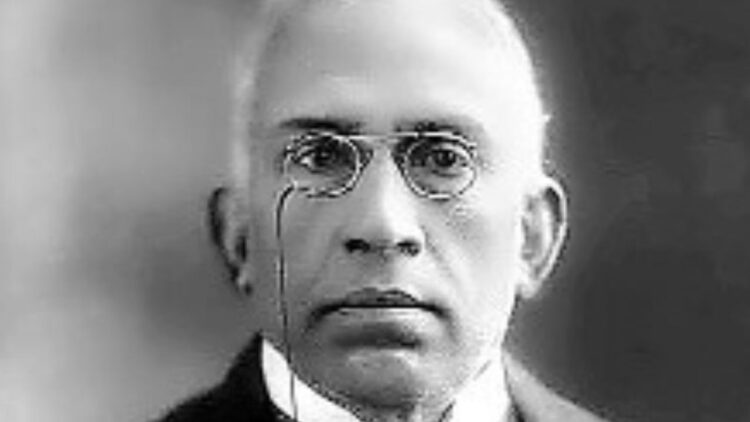On Monday, Prime Minister Narendra Modi paid tribute to one of India’s most courageous and principled freedom fighters — Sir Chettur Sankaran Nair, a legal luminary and fierce nationalist who stood tall against British tyranny when silence was the safer path.
“Yesterday marked the 106th anniversary of the Jallianwala Bagh massacre,” the Prime Minister said. “But there’s another dimension to that dark chapter — a blazing spirit of humanity and patriotism. That spirit was embodied by Sankaran Nair… Inspired by the massacre, he fearlessly raised his voice against British atrocities. He was from Kerala, and the incident happened in Punjab — yet he chose to fight alone.”
Sir Sankaran Nair’s extraordinary story, long overshadowed in our historical discourse, is now being brought to life in the upcoming film Kesari Chapter 2. Based on the 2019 book The Case That Shook the Empire: One Man’s Fight for the Truth about the Jallianwala Bagh Massacre by his great-grandson Raghu Palat and Pushpa Palat, the film promises to honour a life devoted to justice and national pride.
Born into an affluent family in Kerala’s Palakkad district, Chettur Sankaran Nair was a prodigy of intellect and conviction. His brilliance propelled him to the Madras High Court in 1880, where he began a distinguished legal career. By 1908, he had become the Advocate General and then a permanent judge of the High Court — a rare distinction for an Indian under colonial rule.
But his ambitions were never confined to personal advancement. In 1897, he rose to the presidency of the Indian National Congress, championing civil liberties, legal reform, and the cause of Indian self-governance. His deep commitment to constitutional ideals made him a natural choice for the Viceroy’s Executive Council, where he was appointed as the only Indian member in 1915 — a powerful but isolating position.
The turning point in his life came in 1919, with the horrifying massacre at Jallianwala Bagh. While many in high office turned a blind eye, Sir Nair resigned in protest, making headlines and history. His act of defiance — from within the very heart of the British establishment — was both rare and revolutionary. It was a principled rebellion, one that rocked the imperial machinery and inspired countless Indians.
But Sir Sankaran Nair was not finished.
In 1922, he authored Gandhi and Anarchy, a scathing critique of British rule in which he held Michael O’Dwyer, the former Lieutenant Governor of Punjab, directly responsible for the Jallianwala Bagh bloodshed. O’Dwyer retaliated by suing Nair for defamation in the High Court of London.
What followed was one of the longest and most fiercely contested civil trials in British legal history. Over five weeks, Sir Nair stood unflinching, refusing to apologise or retract his claims. In a foreign courtroom, he remained a towering embodiment of Indian integrity. He chose to pay £500 in damages — not as surrender, but as a statement. He would rather pay a price than sell the truth.
His fearless legal battle, largely forgotten today, was a silent but stunning act of resistance — a lone warrior shaking the confidence of an empire.
Sir Sankaran Nair passed away in 1934. But his legacy thundered again six years later when Udham Singh assassinated O’Dwyer in London — a moment forever etched in the annals of India’s struggle for freedom, and later immortalised in the film Sardar Udham.
And now, through Kesari Chapter 2, Sir Sankaran Nair’s story returns to the national consciousness. Akshay Kumar takes on the powerful role of this unsung hero, with R Madhavan and Ananya Panday joining the ensemble in a film that seeks not just to entertain, but to enlighten.
Sir Chettur Sankaran Nair was more than a jurist — he was a lion of liberty, a man whose voice thundered in courtrooms and whose courage reverberated across continents. When others chose silence, he chose defiance. When submission was safe, he chose sacrifice.
Let this cinematic tribute rekindle our gratitude for the brave souls like Sankaran Nair — visionaries who didn’t just resist, they redefined resistance. May his story inspire generations to stand tall, speak up, and never trade truth for comfort.

















Comments